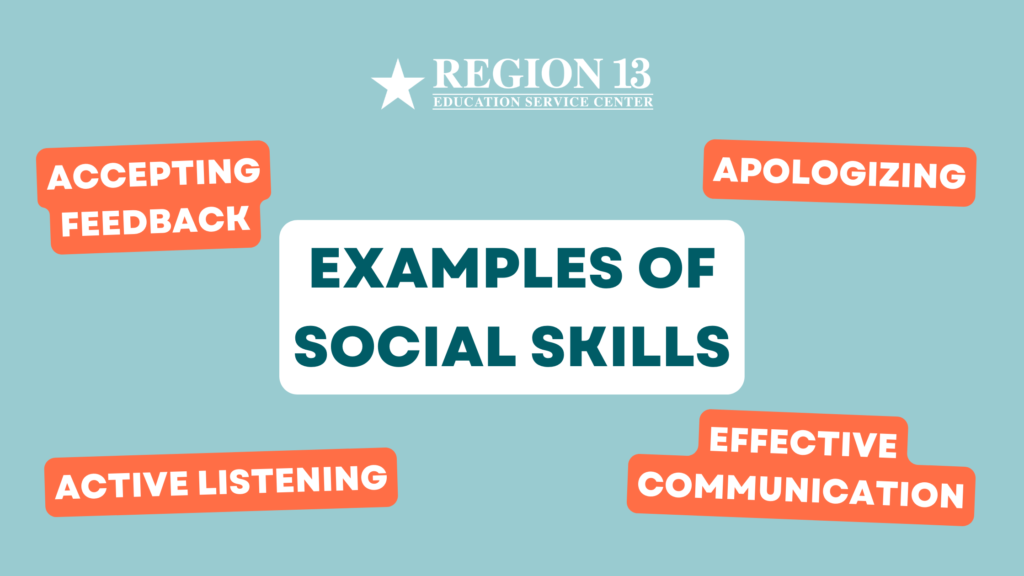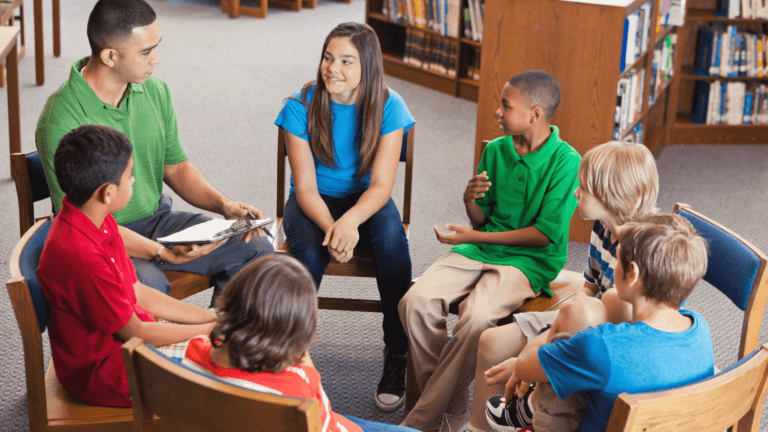According to an Education Advisory Board (EAB) survey, since 2018, educators have reported a significant jump in opposition and emotional disconnection among students. Those findings align with a May 2022 National Center for Education Statistics survey that found more than 80% of public schools had noticed slower behavioral and socio-emotional development in students amid the pandemic.
The Need for Social Skill Development
These surveys highlight the need for increased basic social skill development training for all students. Classroom skills go beyond textbooks and test scores; they lay the foundation for success in education and life. When students lack these skills, it can adversely affect their behavior and academic performance. Some examples include active listening, empathy, conflict resolution, assertiveness, effective communication, and more. The absence of these skills can significantly impact a student’s behavior in the classroom.
The first step in class-wide skills development is assessing where your students are and what skills they need. A great place to start is Skillstreaming, a research-based social skills curriculum with lessons and tools to evaluate students. After determining your students’ skill development needs, you can create a plan for teaching social skills in your classroom. To effectively explain and nurture these skills, teachers should develop role-plays, find teachable moments to reinforce the generalization of skills, and have classroom discussions to foster a classroom community that understands the importance of skill development.
Setting Up Role-Plays in Your Classroom
Setting up effective role-plays in the classroom is a valuable teaching strategy for helping students develop social skills. Role-plays allow students to practice and apply these skills in a safe and controlled environment. Here’s a step-by-step guide on how to set up and conduct effective role-plays for teaching social skills:

- Identify the Social Skill: Start by determining the specific social skill you want to teach. This could include skills like active listening, conflict resolution, accepting feedback, apologizing, or effective communication.
- Create Scenarios: Develop realistic scenarios or situations that require using the chosen social skill. These scenarios should be relevant to the students’ lives and age-appropriate. For example, if you’re teaching active listening, a scenario might involve a student listening to a friend who is upset about a problem.
- Assign Roles: Depending on the number of students in your class, assign roles for each scenario. You can have students work in pairs or small groups, with one student taking on the role of the person practicing the skill (e.g., the active listener) and the other student(s) taking on different roles (e.g., the person expressing their feelings or thoughts).
- Provide Clear Instructions: Before starting the role-play, explain the scenario, the roles, and the social skills you want them to practice. Ensure that students understand their roles and what is expected of them during the role-play.
- Set Rules and Guidelines: Establish ground rules for the role-play, such as respectful behavior, active participation, and constructive feedback. Emphasize that the goal is to practice and learn, not to judge or criticize.
- Observe and Facilitate: As students engage in the role-play, observe their interactions. Take notes on what they do well and areas that need improvement. You can also use a checklist or rubric to assess their performance.
- Debrief and Discuss: Lead a discussion with the class after the role-play. Ask students to reflect on their experiences, what they did well, and what they could improve. Encourage them to share their thoughts and feelings during the role-play.
- Provide Feedback: Offer constructive feedback to each student or group, focusing on specific examples from the role-play. Be supportive and encourage improvement rather than criticism.
- Repeat and Practice: To reinforce the social skill, have students repeat the role-play with different scenarios or partners. This repetition helps solidify their understanding and application of the skill.
- Generalization: Encourage students to apply the social skills learned in role-plays to real-life situations. Discuss how they can transfer what they’ve learned to their interactions outside of the classroom.
- Assessment and Progress Tracking: Periodically assess students’ progress in using social skills in real-life situations. Track their growth over time and provide additional support as needed.
- Variety and Creativity: Keep role-plays engaging by introducing a variety of scenarios and creative elements. You can also incorporate props, multimedia, or technology to make the role-plays more dynamic.
- Peer Assessment: Encourage students to provide feedback to their peers during role-plays. This helps them learn from each other and fosters a sense of community and responsibility within the classroom.
- Incorporate Role-Play into Curriculum: Integrate role-plays into your regular curriculum to ensure consistent practice of social skills throughout the school year.
Following these steps and consistently incorporating role-plays into your teaching strategy can help your students develop and improve their social skills in a supportive and interactive classroom environment.
The most challenging part of social skills training is generalizing the social skills outside of the skill lesson. A couple of strategies to help reinforce the use of social skills across all settings include positive praise, self-monitoring, and peer feedback. Providing positive feedback to students when they display appropriate social skills in the classroom can have a range of positive outcomes. These outcomes are not only beneficial for the individual students but also contribute to a positive and inclusive classroom environment. It plays a vital role in the overall development of students, both academically and socially.
Angela has 24 years of experience in education. She has been in her current position for 12 years. Angela has trained and provided coaching support to over 200 campuses for PBIS. She is also a certified Restorative Practices coordinator. She is a trainer for Interventions, Coaching Classroom Management, CHAMPS, and Why Try.






[…] Engaging in role-playing exercises is a great way for parents to help their kids practice social skills. By acting out different roles, kids learn how to handle social situations better. Parents can offer feedback and tips to improve their communication and problem-solving skills20. […]